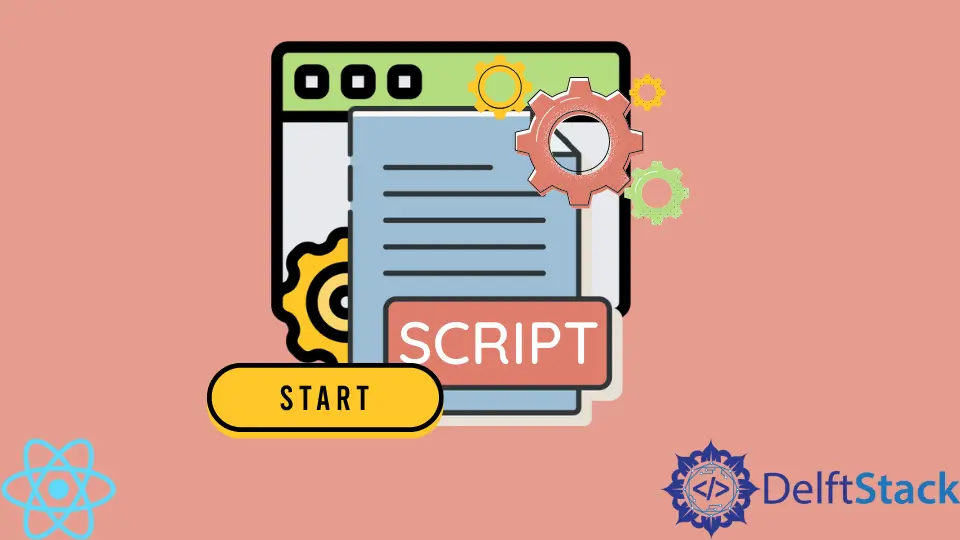React-Scripts Start in React
- Understanding React-Scripts
- Getting Started with React-Scripts Start
- Customizing React-Scripts Start
- Debugging with React-Scripts Start
- Conclusion
- FAQ

Creating applications with React has become increasingly popular, and one of the most efficient ways to bootstrap a React project is by using the create-react-app package. This tool simplifies the setup process and comes with a variety of scripts that help developers run essential features effortlessly. Among these scripts, the react-scripts start command is particularly significant as it initiates the development server, allowing developers to see their changes in real time.
In this article, we will explore what react-scripts start does, how to use it effectively, and some best practices to enhance your React development experience.
Understanding React-Scripts
React-scripts are a set of scripts included in projects created with create-react-app. These scripts automate common tasks such as starting the development server, building the application for production, and running tests. By abstracting away the configuration details, developers can focus on writing code rather than worrying about toolchain setup.
When you run the command npm start or yarn start, you are essentially invoking react-scripts start. This command sets up a development environment with hot reloading, which means your application will automatically refresh whenever you make changes to the source code. This feature is invaluable for speeding up the development process, allowing you to see the results of your modifications instantly.
Getting Started with React-Scripts Start
To begin using react-scripts start, you first need to create a new React application. If you haven’t already done so, you can set one up using the following command:
npx create-react-app my-app
This command creates a new directory called my-app and sets up a new React application with all the necessary files and configurations. Once the setup is complete, navigate into your project folder:
cd my-app
Now, you can run the development server:
npm start
or
yarn start
Output:
Compiled successfully!
You can now view my-app in the browser.
Local: http://localhost:3000
On Your Network: http://192.168.1.2:3000
When you run this command, the development server starts, and your default web browser should automatically open to http://localhost:3000, displaying your new React application. If it doesn’t open automatically, you can manually enter the URL in your browser.
The development server provides live reloading, which means that any changes you make to your code will be reflected in the browser without needing to refresh the page manually. This feature significantly enhances the development experience, allowing you to iterate quickly.
Customizing React-Scripts Start
While react-scripts start provides a great starting point, you may want to customize its behavior to suit your project’s specific needs. For example, you might want to change the default port or enable additional logging. You can achieve this by modifying the start script in your package.json file.
To change the default port, you can add an environment variable before the start command:
"scripts": {
"start": "PORT=4000 react-scripts start"
}
After making this change, when you run npm start, your application will now be served on http://localhost:4000. This is particularly useful if you have multiple applications running simultaneously and need to avoid port conflicts.
If you’re using Windows, you can set the environment variable differently:
"scripts": {
"start": "set PORT=4000 && react-scripts start"
}
Output:
Compiled successfully!
You can now view my-app in the browser.
Local: http://localhost:4000
On Your Network: http://192.168.1.2:4000
Customizing your start script can make your development process smoother and more efficient. You can also add other environment variables to enable features like debugging or API endpoints.
Debugging with React-Scripts Start
Debugging is an essential part of the development process, and the react-scripts start command provides several built-in features to assist with this. When you run the development server, it generates detailed error messages in the console if something goes wrong. This can help you quickly identify and fix issues in your code.
For a more comprehensive debugging experience, you can also utilize browser developer tools. Most modern browsers come with built-in developer tools that allow you to inspect elements, view console messages, and monitor network requests. By using these tools in conjunction with react-scripts start, you can gain deeper insights into your application’s behavior.
For instance, if you encounter a JavaScript error, you can open the console in your browser’s developer tools to see the stack trace and identify the source of the problem. This can save you a significant amount of time compared to traditional debugging methods.
Moreover, you can add additional logging statements in your code to provide more context about the application’s state at various points. This can be particularly helpful when troubleshooting complex issues.
Conclusion
The react-scripts start command is a powerful tool that simplifies the development process for React applications created with create-react-app. By providing a seamless way to start a development server, it allows developers to focus on writing code and building features. Customizing the start script and utilizing debugging tools can further enhance your development experience, making it easier to create high-quality applications. Whether you’re a beginner or an experienced developer, understanding how to effectively use react-scripts start is crucial for success in the React ecosystem.
FAQ
-
What is the purpose of react-scripts?
react-scripts are scripts included in create-react-app that automate common tasks like starting the development server and building the application. -
How can I change the default port for my React application?
You can change the default port by setting the PORT environment variable in your package.json start script. -
What happens when I run npm start?
Running npm start invokes the react-scripts start command, which starts the development server for your React application. -
Can I customize the behavior of react-scripts start?
Yes, you can customize it by modifying the start script in your package.json file, such as changing the port or enabling additional logging. -
How can I debug my React application while using react-scripts start?
You can use the console output for error messages and utilize browser developer tools to inspect elements and monitor network requests.
Irakli is a writer who loves computers and helping people solve their technical problems. He lives in Georgia and enjoys spending time with animals.
LinkedIn